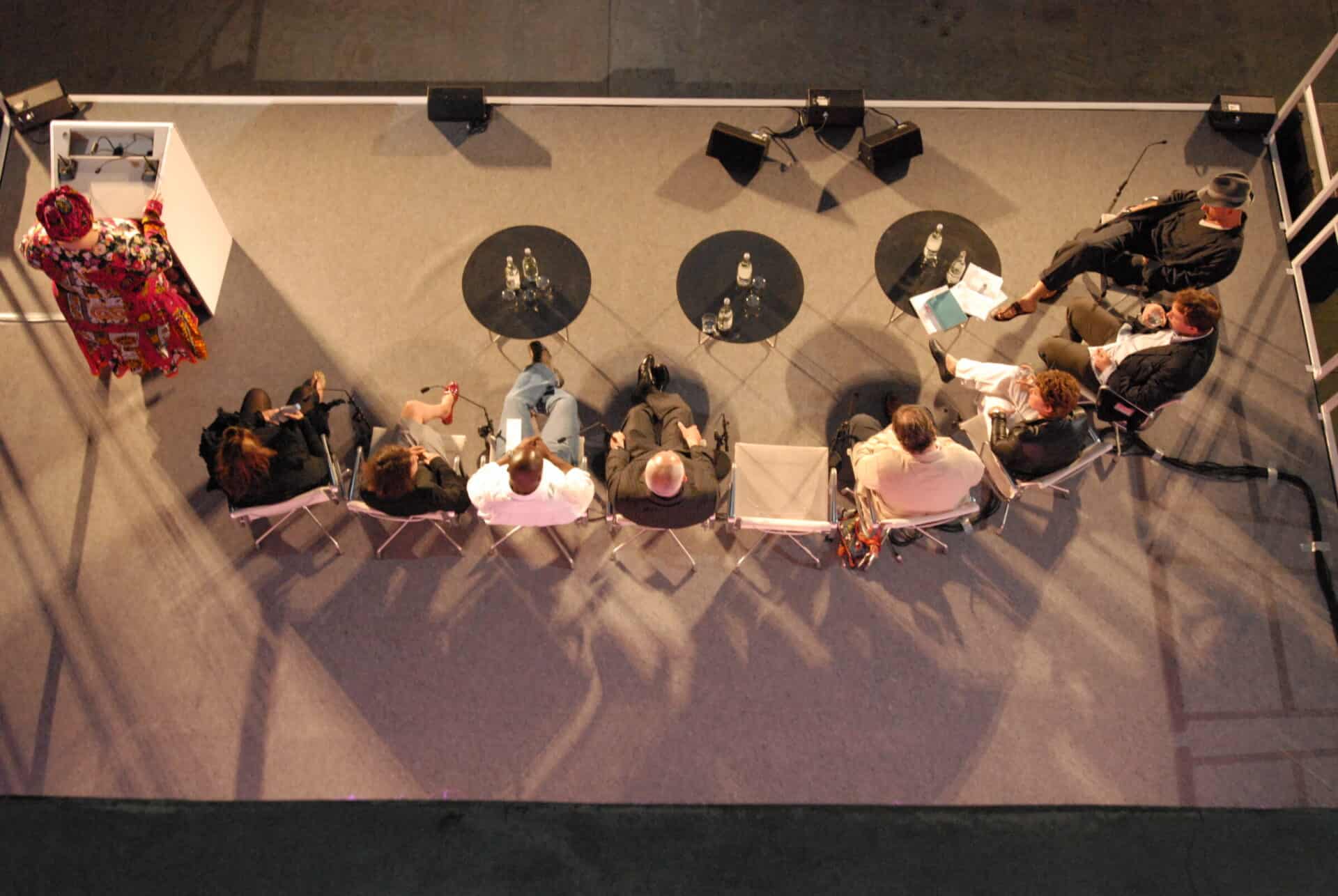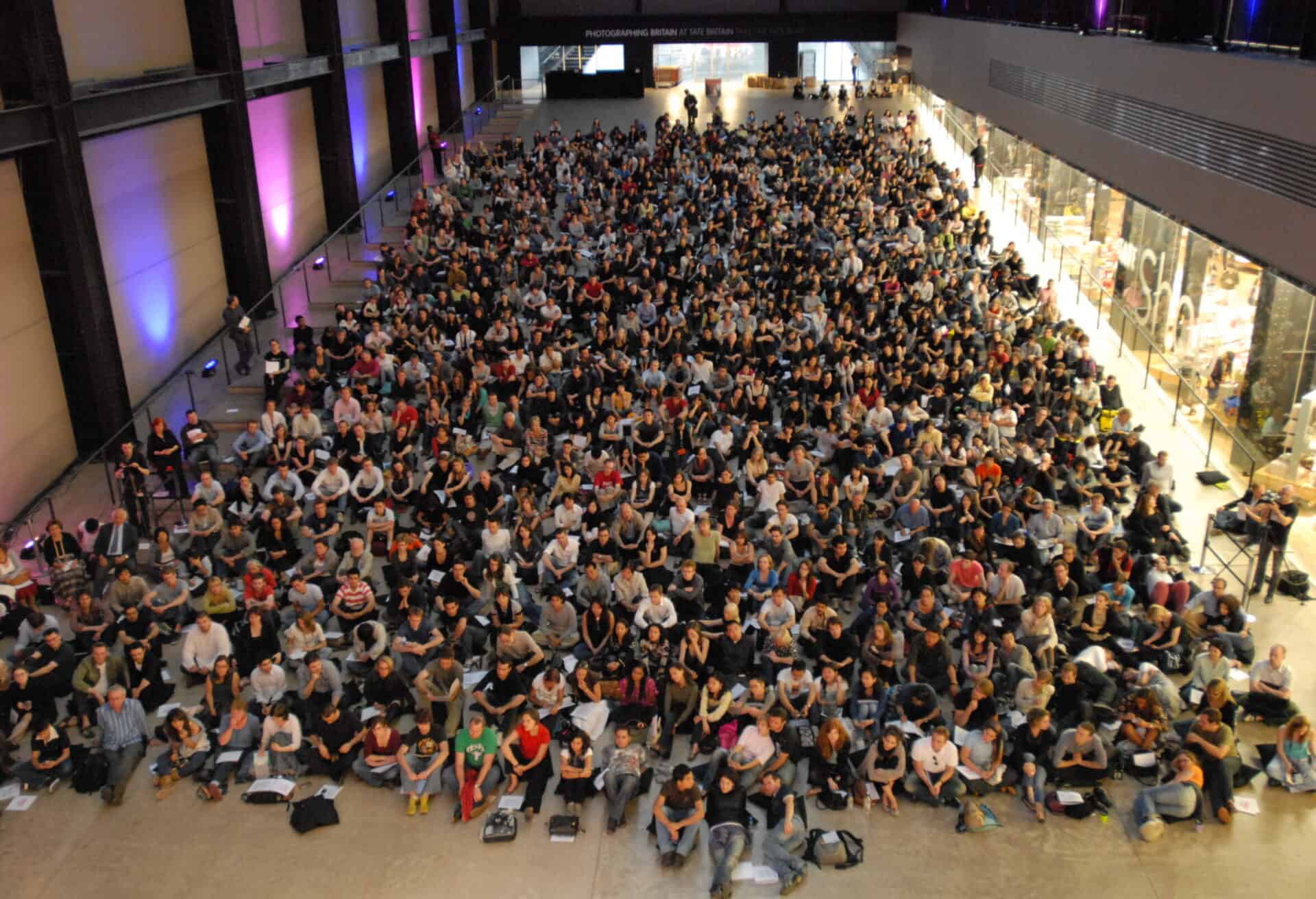Next – Project
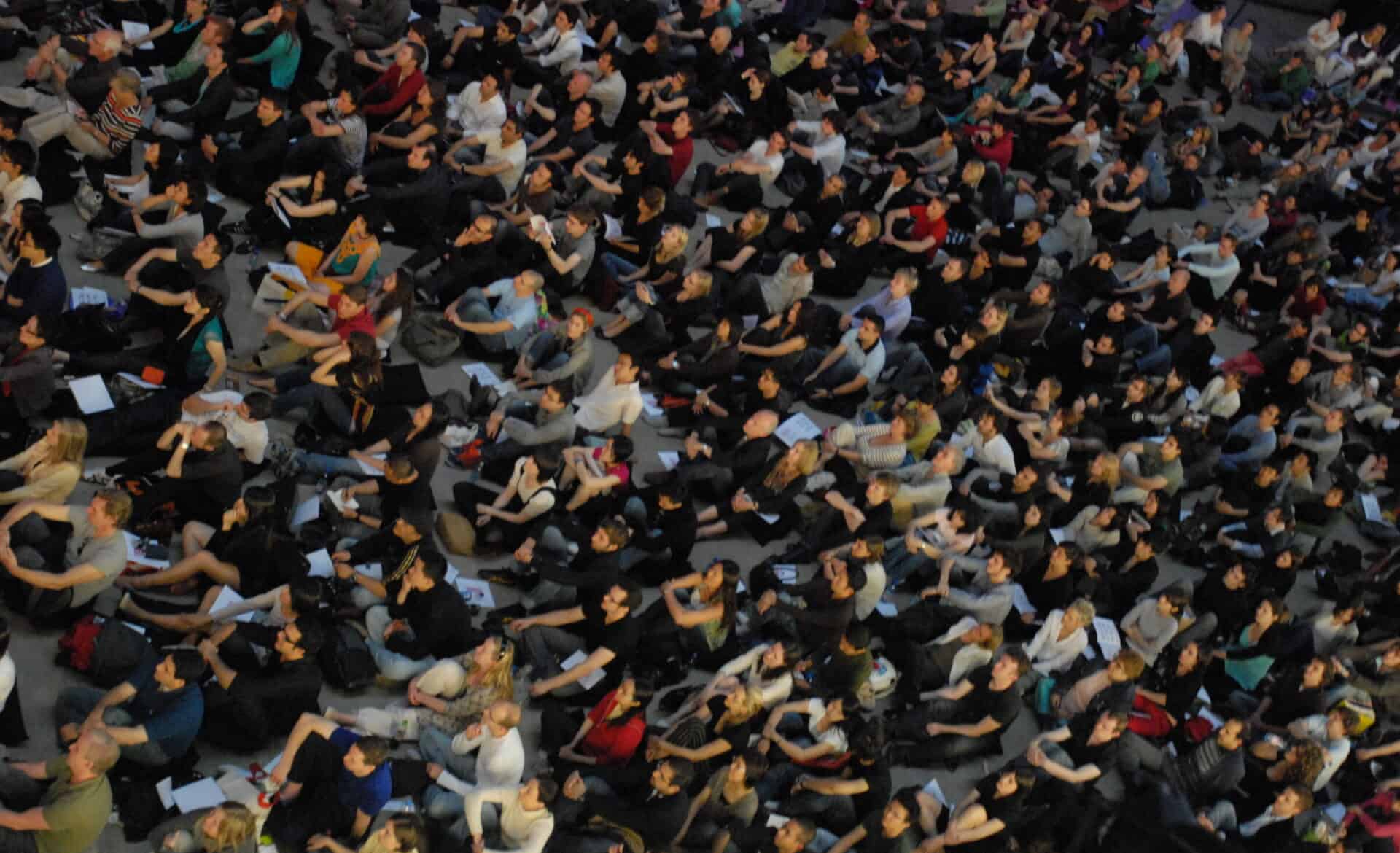
Debate 2: 2012 Wish List, What Do you Want for London?
Saturday 23 June 2007
The 2012 Olympics are meant to be a time for celebrating the whole of London, not just the Lee Valley, They are about rising aspirations for is future and creative a legacy beyond 2012. They will intensify the global attention already directed towards London. The hope is that they will leave a permanent change for the better in London’s physical environment and self-image, like Barcelona in 1992 and not like Montreal in 1976, with a big debt.
But what exactly does London need? What do you give the city that has almost everything?
Does it need more trees, more police persons, cleaner streets, more modern architecture, more tube lines, fewer CCTV camera or fewer cars? Doe sit need braces and logos or simply decent homes for everyone? Or should we simply stop imposing plans and visions on the city and let it flourish in its own way?
In the 2012 Wish List strong-minded and brilliant individuals said what they most wanted for London.
This event was part of Debate London, a series of public events curated by The Architecture Foundation and hosted by Tate Modern in London.
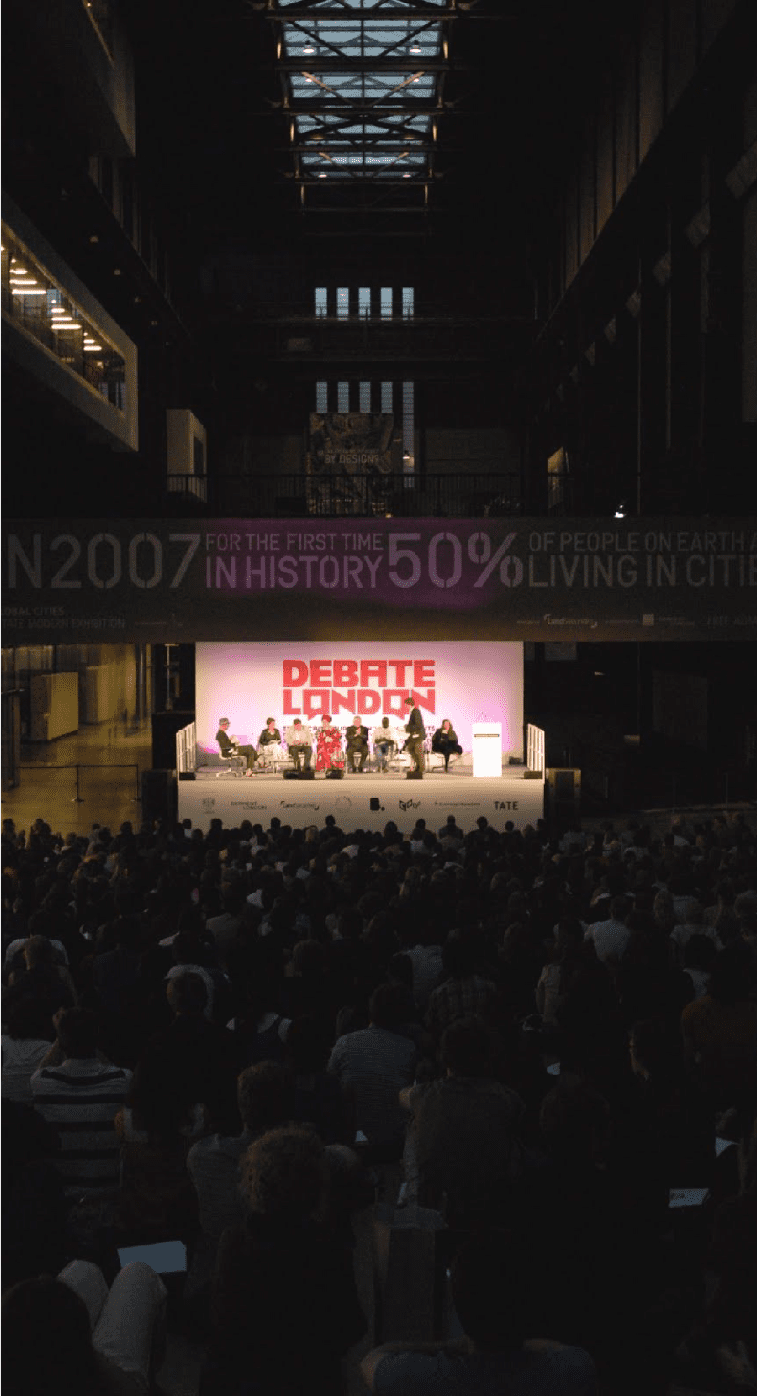
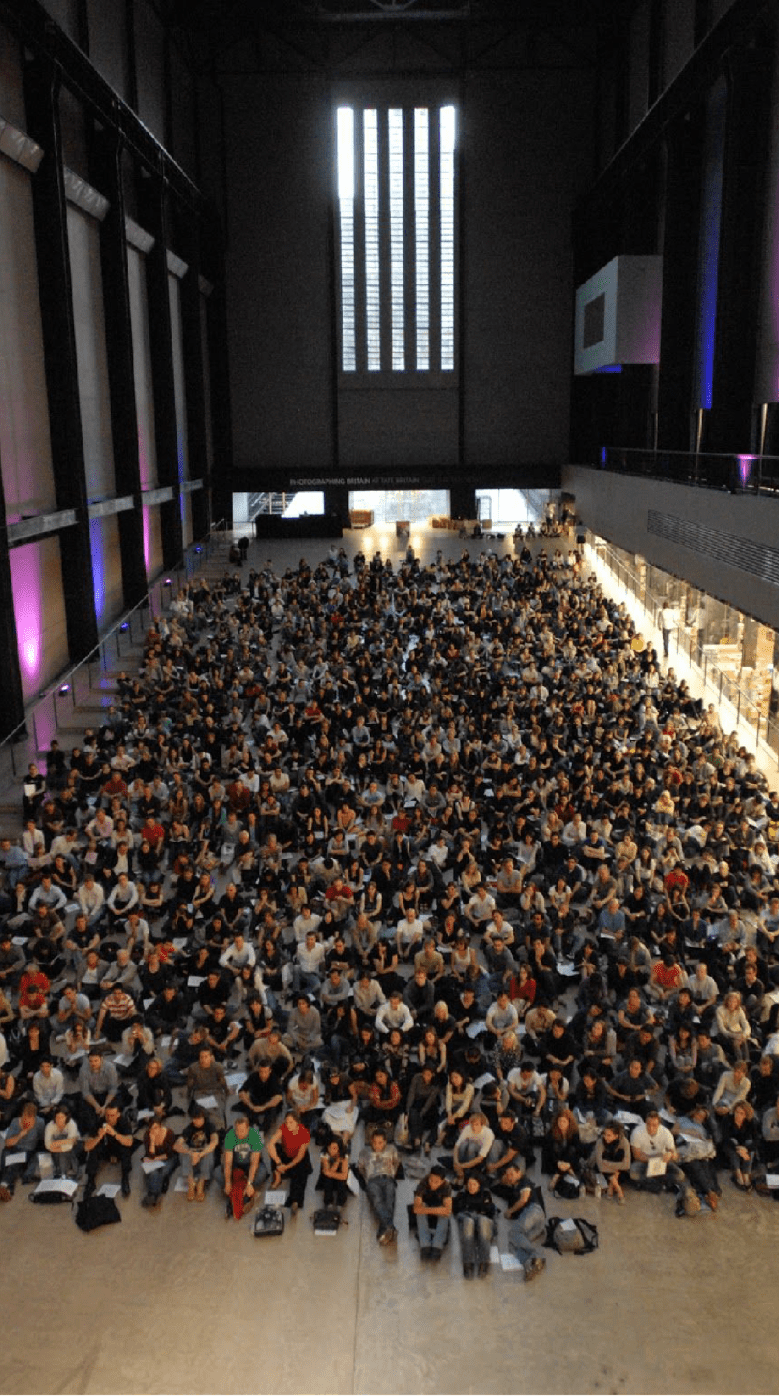
Speakers
Paul Finch, editor, Architectural Review (chair)
Shaun Bailey, co-founder, My Generation and conservative parliamentary candidate
Camila Batmanghelidjh, psychotherapist and founder, Kids Company
John Bird, founder, Big Issue magazine
Celine Condorelli, architect and artist
Tom Coward, architect and co-founder, AOC
Zaha Hadid, architect
Fritz Haag, architect, activist and artist
Helen Marriage, cultural producer and founder, Artichoke
Ben Page, Chairman, Ipsos Mori (introduction)

Event Summary
“A very healthy crown turned out for ‘2011 Wish List’. An impressive and diverse list of contributors found itself dealing with some of the fundamental questions regarding the future of London’s built environment. Ben Page of Ipsos Mori reported that Londoners are conservative (we don’t like tall buildings), and while we all bemoan the lack of affordable housing in the capital, we don’t want any built in our backyard. Starchitect Zaha Hadid made a plead for “great housing for everybody”, more high-quality public spaces and greater political focus on education. Architect Tom Coward followed Zaha with a more pragmatic call for London to concentrate on its existing messiness, without trying to solve it. Helen Marriage wanted more magic and less cynicism, before three consecutive speakers made speeches that came to define the rest of the discussion. Camilla Batmanghelidjih, psychotherapist and child worker, called for more attention to be paid to children. Mayoral candidate and Big Issue founder,John Bird, said: “The reality is that people are dying in this city because we are not making it happy and healthy.” Shaun Bailey, conservative parliamentary candidate for Hammersmith [west London], referred to his own experience of the council states he has always lived in: “redevelopment and regeneration mean nothing to people. It’s just about changing an ugly cage to a pretty cage. If you live in a palce that is small, cramped and ugly, you feel disrespected.”
– Kieran London, editor of project website
Audience Feedback
“A fertile mix of perspectives”
“Zaha rose to the occasion again the men.”
“I didn’t want to leave”.
Press Comment
“Zaha Hadid has launched a verbal attack on London independent mayor candidate, John Bird, after he said Le Corbusier was guilty of designing “s**tholes”. The clash occurred at the Debate London event in which Bird, founder of the Big Issue [homeless newspaper], insisted Modernist master Le Corbusier knew nothing about the people who would live in his tower blocks. “Le Corbusier knew about theories but what [his] Unité d’Habitation in Marseille has been reduced to is a s*thole”, said Bird. “Architects to this day still do not understand the poor”, he continued. But Hadid, who is designing the London 2012 Aquatics Centre, rebuffed Bird’s outburst, stating there was “crap” in London because “people like you have no respect for architects”. Defending Le Corbusier’s influence on London social housing, the starchitect said: “I don’t think we should look at an experiment in a particular way of living that we may or may not like and then decide to literally wipe it out along with the invention of Modernity”.
– Clive Walker, Architects’ Journal, online edition, published 25 June 2007
